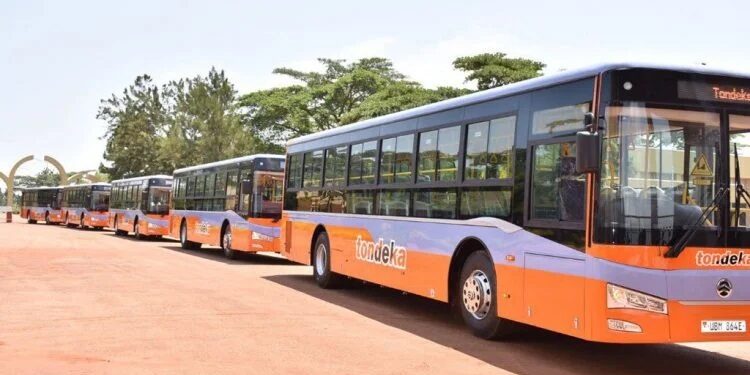With Uganda’s traffic woes hindering productivity and raising worries about the nation’s economic growth, experts recommend the introduction of mass bus transport system aimed at curbing congestion and improving efficiency.
It is evident that Uganda is grappling with a serious and worsening traffic congestion problem, significantly impacting citizens’ daily lives and hindering economic productivity.
The situation has become alarming, and concerns are rising about the long-term implications of this persistent issue. Each day, urban centers across Uganda experience overwhelming traffic jams, causing significant time wastage for commuters.
The hours spent stuck in gridlocked roads have severe consequences on personal and national productivity, as people face exhaustion and stress, ultimately affecting their work performance and overall well-being.
The negative effects of traffic congestion extend across various sectors of the economy. Employees are frequently arriving late for work, leading to reduced efficiency and output.
Businesses also suffer from delayed deliveries of goods and services, affecting customer satisfaction. Essential sectors like healthcare and education encounter challenges in providing timely services due to congestion-related delays.
Unfortunately, viable solutions to address this issue have not been effectively implemented. Projects like the Mass bus transport system, which could alleviate traffic congestion and improve urban mobility, have been slow to materialize. This delay has left citizens disheartened and frustrated, yearning for relief.
Experts caution that if not addressed promptly, traffic congestion could have serious implications for Uganda’s economic growth and competitiveness. Urgent action is required to find efficient solutions to this pressing problem.
Businesses might choose to relocate or expand their operations in regions with better transportation infrastructure, leading to missed opportunities for job creation and economic development.
Moreover, traffic congestion resulting from increased fuel consumption further strains the nation’s energy resources and poses environmental challenges.
To unlock Uganda’s full economic potential and mitigate these potential repercussions, urgent action is imperative.
The government needs to prioritize infrastructure development, such as the prompt implementation of projects like the Mass bus transport system.
By investing in modern and sustainable public transport solutions, the government can provide citizens with efficient alternatives to private vehicles, reducing traffic congestion and its associated productivity losses.
Additionally, innovative urban planning, improved traffic management, and public awareness campaigns can contribute to easing congestion through a collective effort.
Engaging with citizens and stakeholders to gather insights and feedback will ensure that solutions are tailored to meet the needs of the people and businesses affected. Ultimately, Uganda’s traffic congestion presents a significant obstacle to productivity and economic growth.
In the final analysis, the government must take decisive action to address this pressing issue and expedite the implementation of transportation infrastructure projects like the Mass bus transport system.
Through these actions, Uganda can foster a more productive and sustainable urban environment, setting the stage for a prosperous economic future.
Do you have a story in your community or an opinion to share with us: Email us at editorial@watchdoguganda.com













